Blind woman feels like a prisoner in own home over guide dog wait
- Published
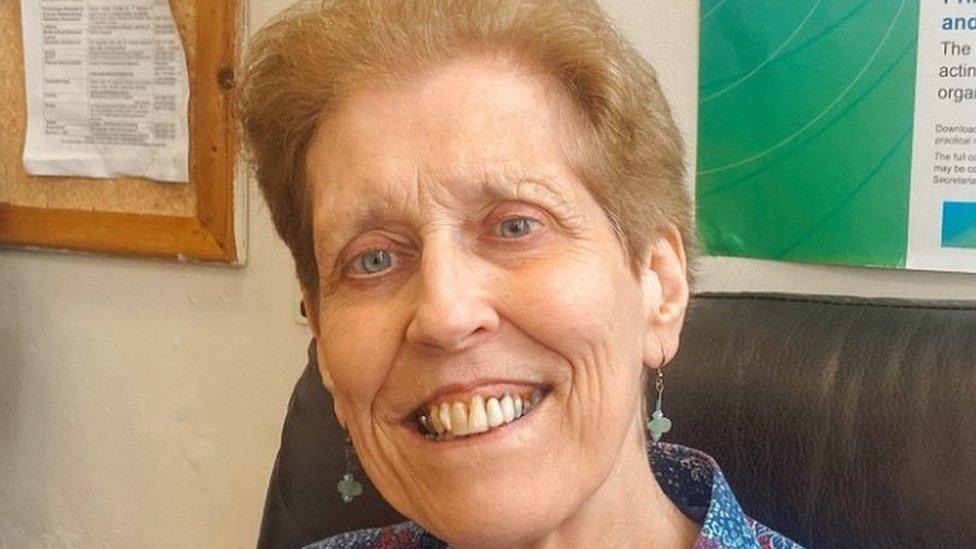
Martha McClelland, who is originally from California in the US but now lives in Londonderry, lost her sight completely two years ago
A visually impaired woman living in Londonderry has said she feels like a prisoner in her own home, waiting more than two years to get a new guide dog.
Martha McClelland, who is originally from California in the United States, lost her sight completely from glaucoma and macular degeneration.
After her guide dog, Jasmine, retired two years ago, she began having falls.
She said she now found it more difficult to get out and about and has lost her independence.
"The first fall was four weeks after she was retired," Mrs McClelland said.
"I broke both elbows, one very badly and it didn't heal properly. I also broke my leg and tore a cruciate ligament".
Mrs McClelland said the injuries had a lasting impact on her confidence.
"I am now afraid going out and walking with the white cane," she said.
"It has really curtailed me. Sometimes I even feel like a prisoner in my own flat."
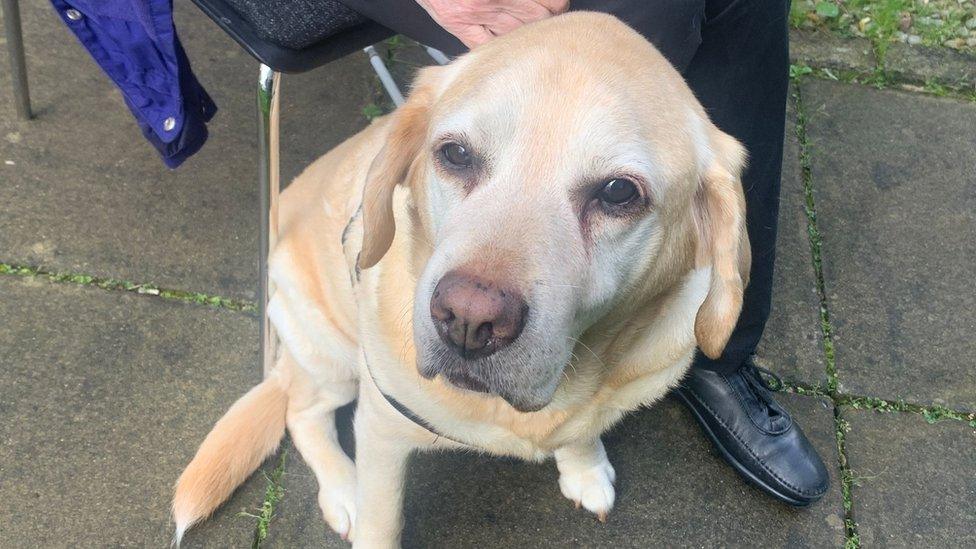
Jasmine retired from working life two years ago, but still lives with Martha as a family pet
Mrs McClelland, who is originally from California and moved to Derry 50 years ago, has applied for a new guide dog but has still not got one.
The Covid-19 pandemic led to delays in the availability and training of dogs, charity Guide Dogs Northern Ireland has said.
A guide dog's average working life is six to seven years and they are normally retired at about 10 or 11 years old, depending on their health and the amount of work they need to do.
Speaking to BBC's The North West Today programme, the charity's head of guide dog service operations Maria Rogan said the pandemic halted both the breeding and training of new guide dogs right across the UK.
She acknowledged many people had been affected.
"It's one we are working tirelessly to overcome, and meet the needs of everyone on our waiting list".
She said the process of rearing and training a guide dog was time consuming and could take about two years.
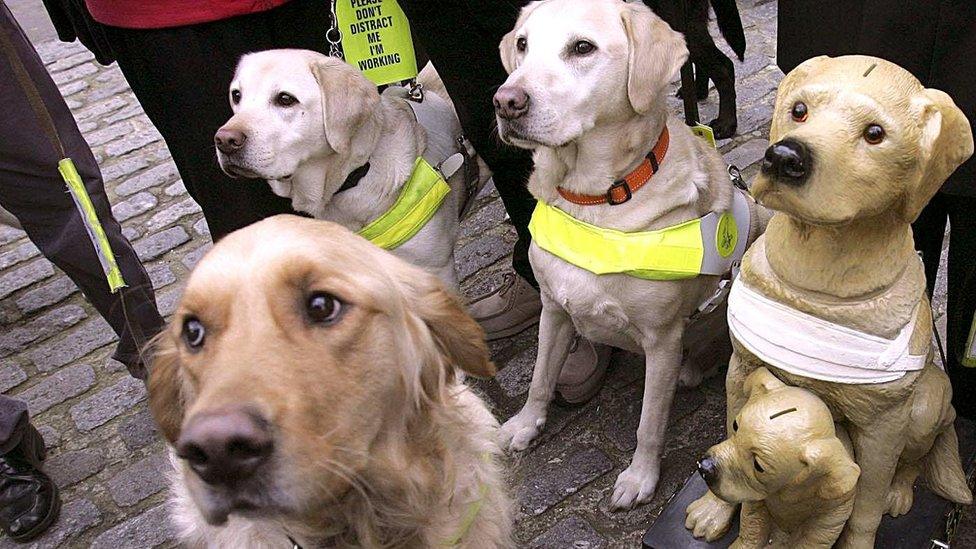
There are more than 1,400 guide dogs trained in the UK each year
Both Ms Rogan and Mrs McClelland are hopeful an initiative run by Guide Dogs Northern Ireland will help people waiting on a guide dog.
They are asking people to consider becoming a My Sighted Guide volunteer, external.
These are people who help visually impaired people, like Mrs McClelland, reconnect with the community by going on walks and out shopping with them.
'Good craic'
"If I could get a guide while I'm waiting to get a new dog that would be wonderful," Mrs McClelland said.
"Become a My Guide volunteer and just have a bit of fun with a blind person, you could be surprised what good craic we are and it would be a great help to us".
The volunteer programme, Ms Rogan said, is an essential part of the guide dog charity's service, helping to "build confidence and independent living".
- Published18 June 2023
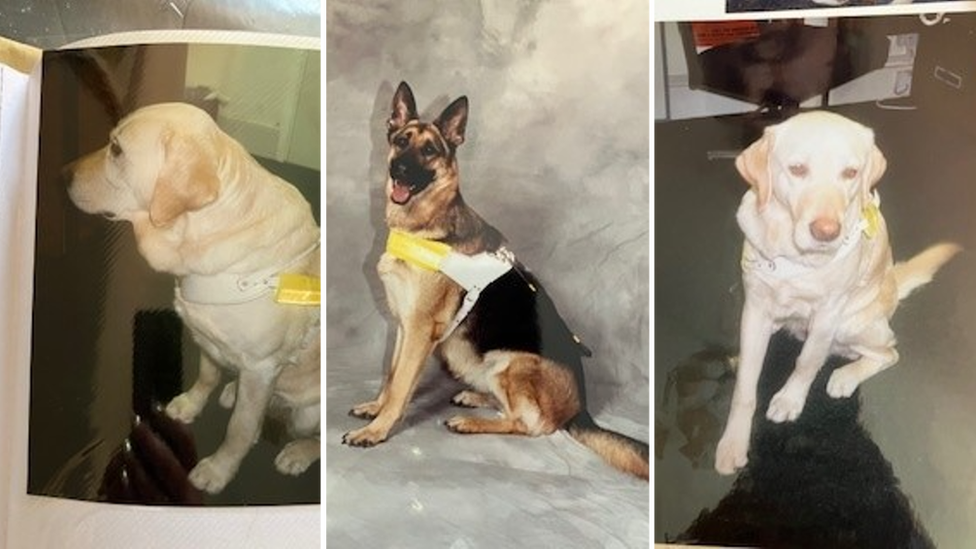
- Published25 August 2022
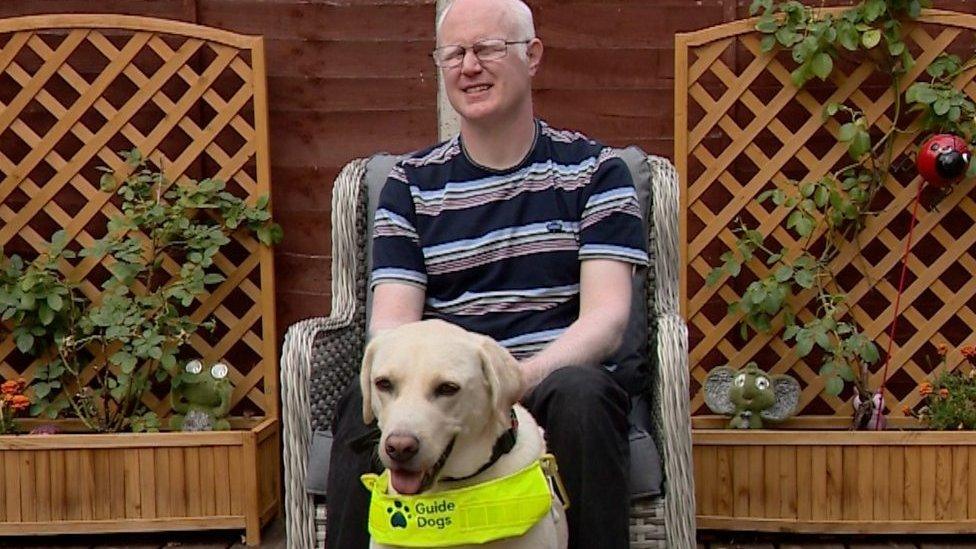
- Published28 April 2019
